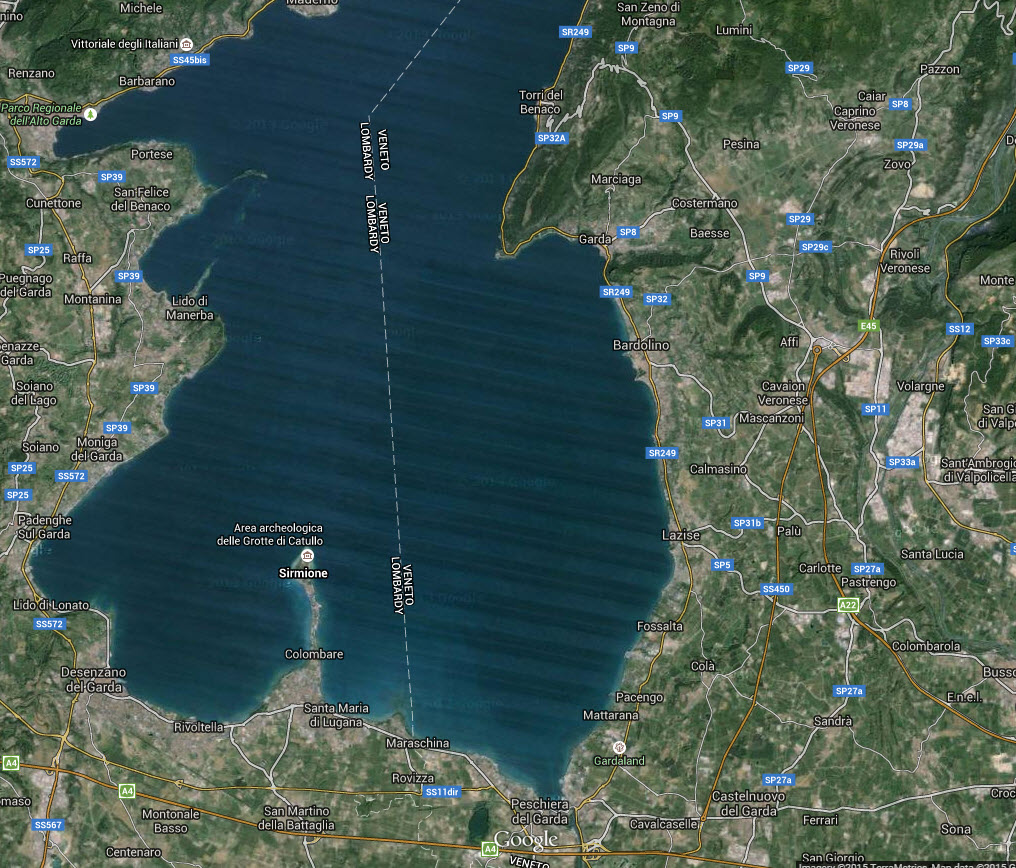
The second discovery meal of the trip was in Sirmione, a beautiful resort town on a skinny peninsula that juts northward in gorgeous Lake Garda somewhat like Nantasket juts into Massachusetts Bay.
We had not planned to visit Sirmione, although a drive to Lake Garda was one of the optional drives we had hoped for. But we slept late after the opera and the preceding night's late dinner, so a long drive in the mountains and lake would have taken too much time from Venice.
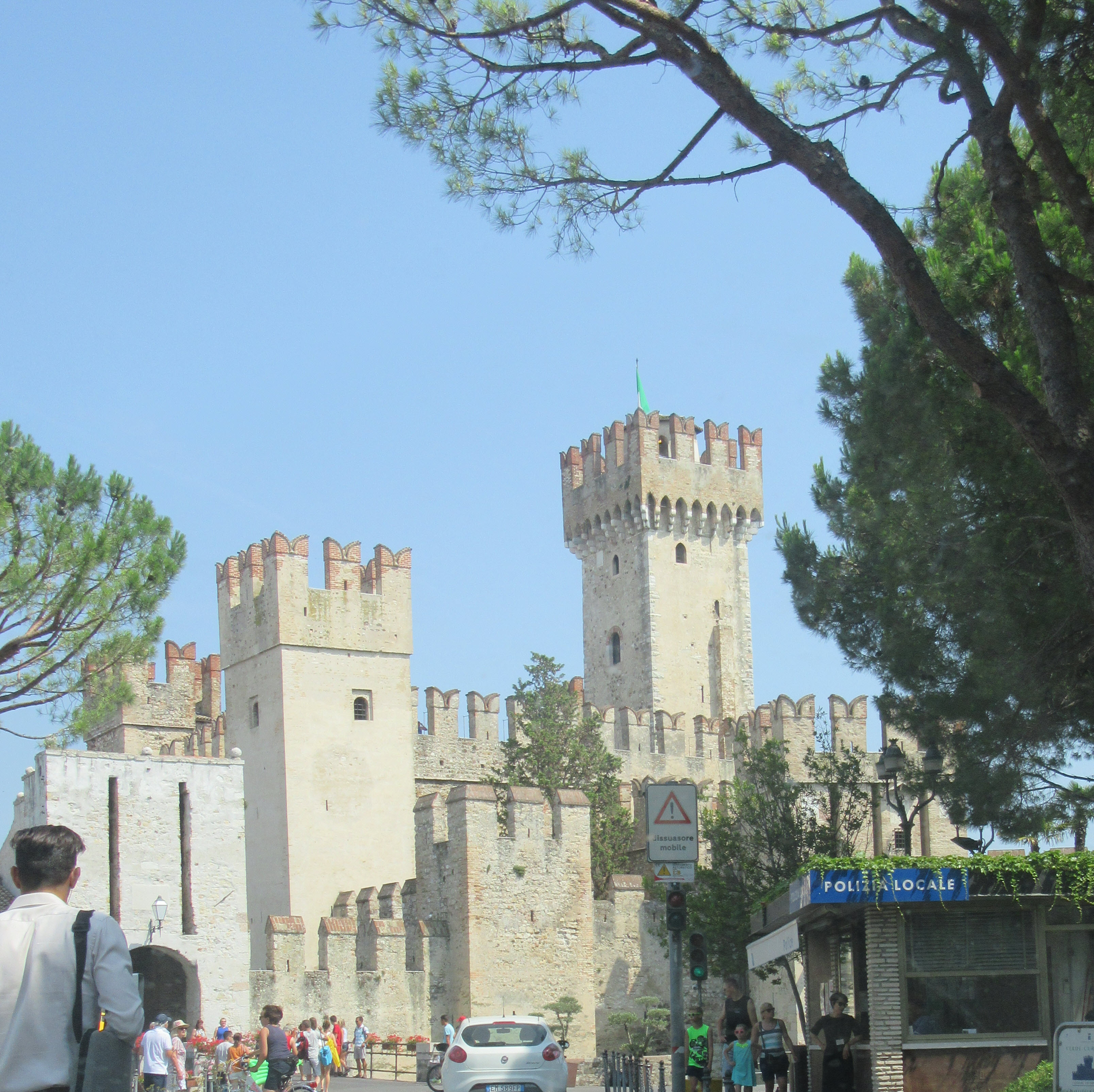
Sirmione is a resort town, with basically one road in and out, little parking, fine hotels, beautiful beaches and a castle at the end of the peninsula. The northern half of the lake is surrounded by great mountains, and the eastern shore is covered with vineyards growing grapes for Valpolicella, Bardolino, and Amarone wines. It reminded us of a cross between Provincetown and Santa Cruz, with the wine country and a castle thrown in for good measure.
Northern Italian cooking is different from southern Italian cooking, and lake country cuisine is different from that of the seashore. The first thing we learned is that Italian food in Sirmione anyway is not loaded up with sauces. At reputable places, the food relies on freshness and skill in preparation, and attractive service. There's no room for error.
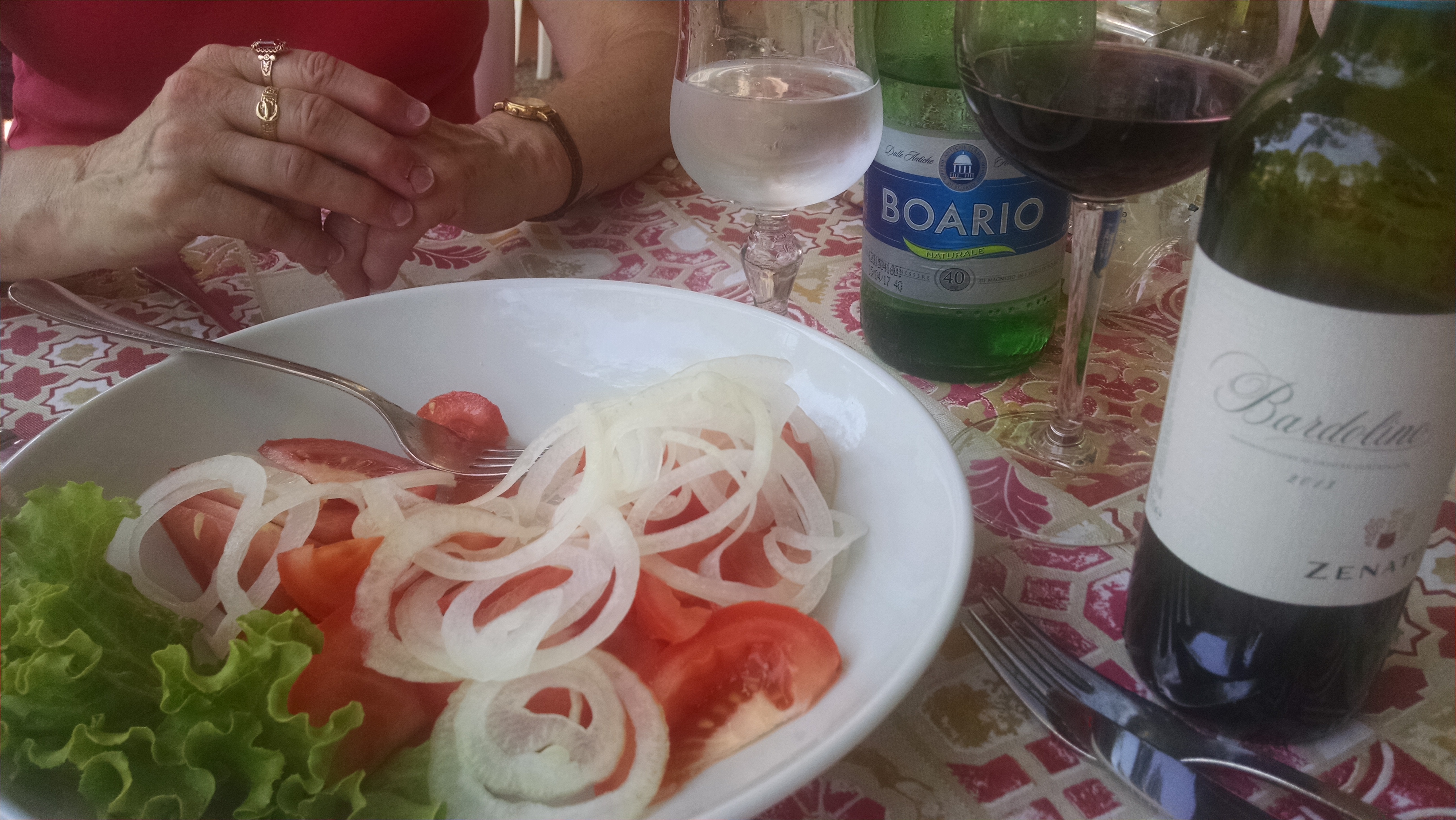
We opened with a tomato salad. When I was growing up, my father made a Neapolitan tomato salad of fresh tomatoes, onions, olive oil, and sometimes oregano and roasted red peppers. This version was just very fresh tomatoes and thinly sliced onions. I don't know if that was northern Italian simplicity or just the house way of making the salad.
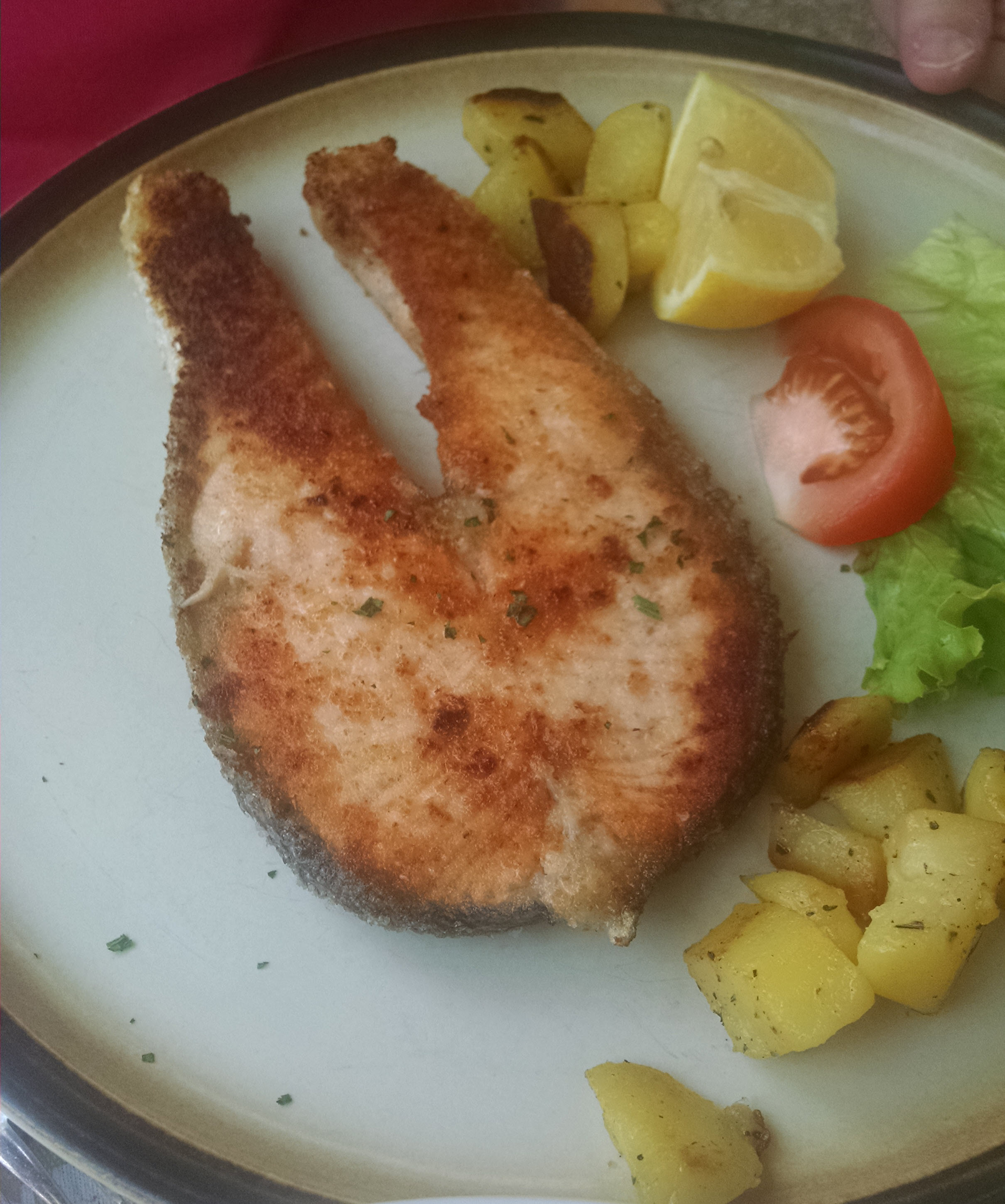
Lorna got a grilled salmon steak. We had seen a sign in Cremona for "Food Lab, The Italian salmon philosophy" that made us wonder what to expect from one of her old reliable choices.
The salmon was excellent. It was leaner than the farmed salmon that we see in New England, and delicious. It was served with perfectly roasted potatoes that we became familiar with all over northern Italy.
We also enjoyed a glass of the local Bardolino wine, while looking across the lake at the vines.
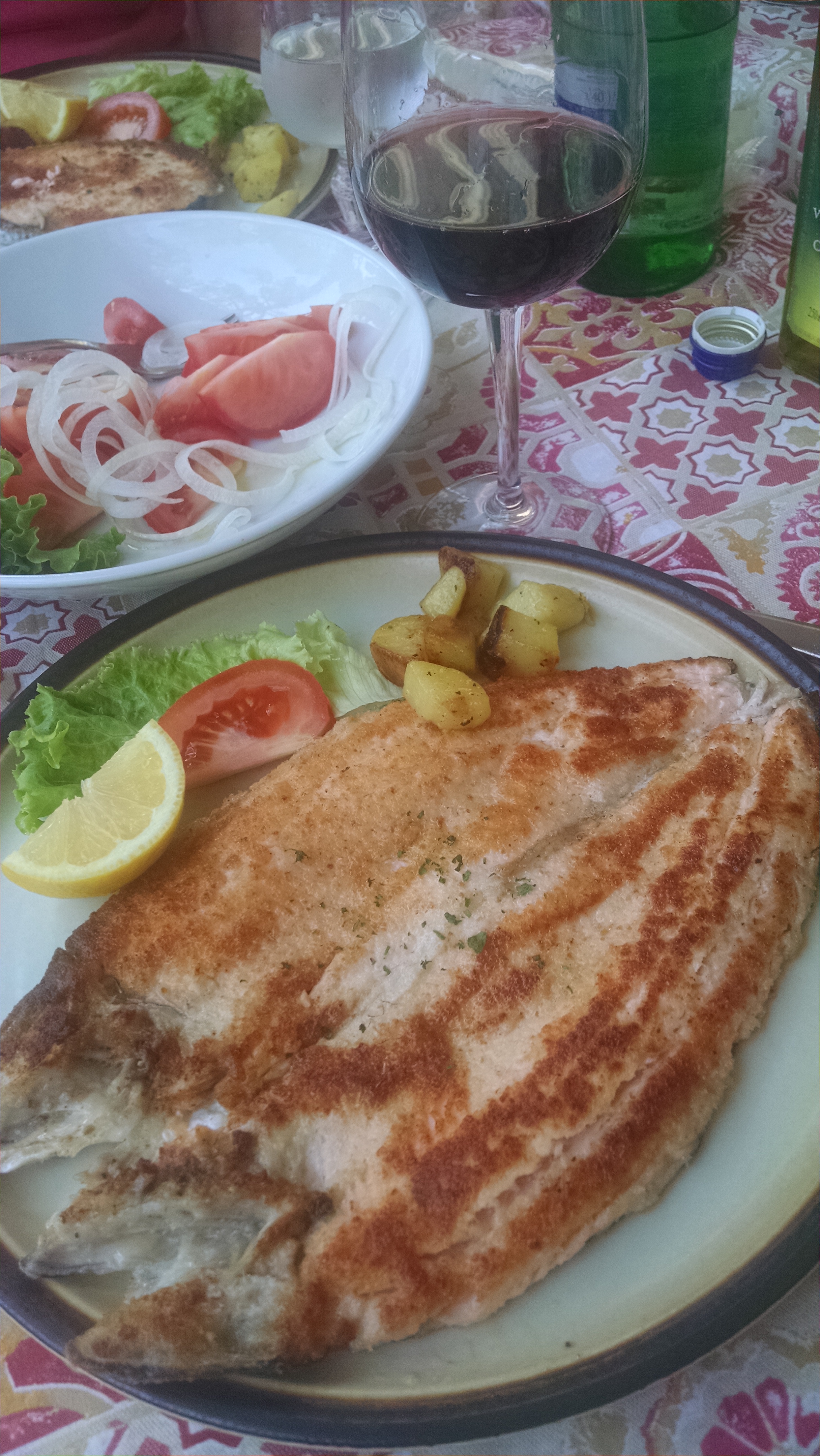
The menu also had Salmon Trout. This gave me a chance to solve a long-outstanding question engendered by a cookbook that I have had for 25 years. This book of authentic Italian recipes includes a number of recipes for Salmon Trout. I had never seen salmon trout and wondered if farmed trout would substitute or if it might be something completely different.
I asked for the salmon trout prepared as similarly as possible to her salmon, so I could compare.
The salmon trout was also delicious, but completely different. It was very similar to farmed trout, but with a distinct salmon-pink color. The flavor was delicate and not oily like a salmon. I'm glad I tried it; now I know that the farmed trout won't be the same thing, but it's a valid substitute in those recipes.
